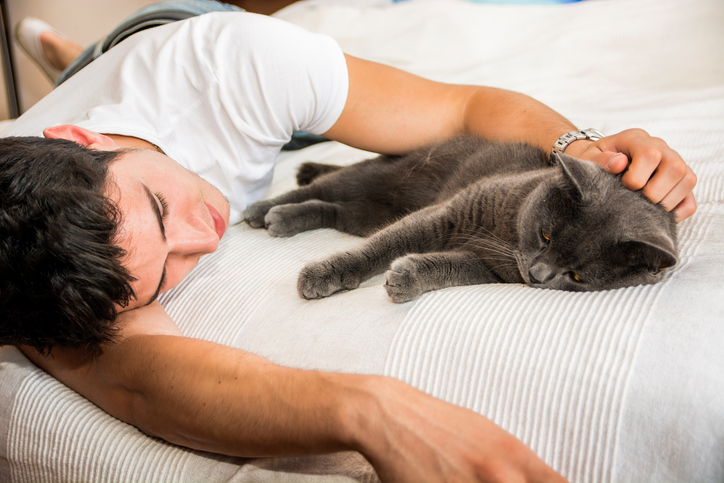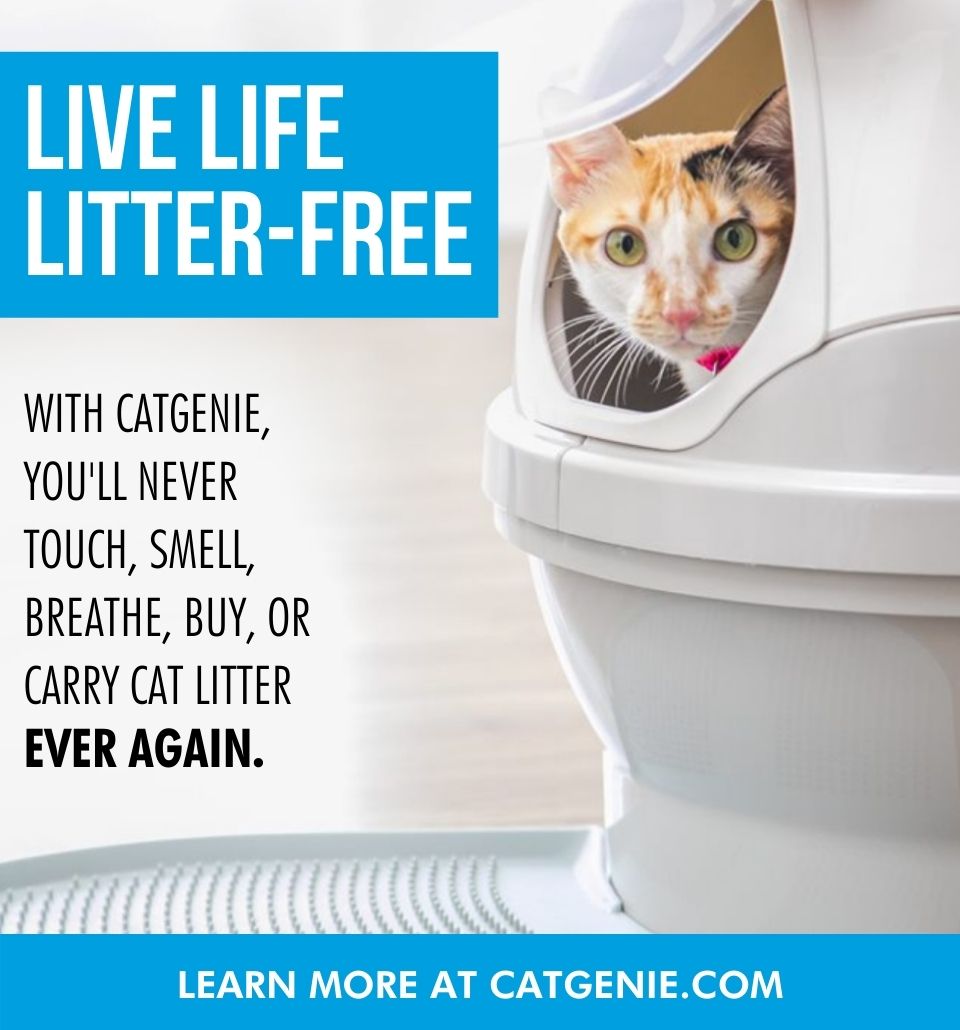You may have always suspected that your cat possesses mystical powers; maybe it’s the way he can get you to do exactly what he wants you to do. While he might not be a master of mind control, telepathy, or spell casting, he most certainly has the power to positively affect your mood and mental health.
If you’re skeptical, let’s first check out what it means to have mental wellness. People with positive mental health like who they are, have positive relationships with those around them, have meaning in their lives and value their experiences. It looks like caring for a cat can absolutely boost any of those areas so let’s talk about how.
Cat Companionship
First and foremost, your cat is your companion, your friend. She helps negate loneliness simply by being there. You can always count on her furry ear to listen to your troubles and worries and know that she will always share her (your) bed with you. As humans, we thrive on social interaction and while Fluffy may not be able to talk you through your problems, she’s also not going to bring up politics.
Rousing Responsibility
Sharing your life with a cat also provides us with a routine and a responsibility. Our brains work the best when we know what is expected of us and when. We all also have a nurturing side that needs to be fulfilled. Caring for a purry pal fills both of those needs. Cats also appreciate a routine, specifically when it comes to feeding and affection, and knowing your sweet kitty is depending on you to provide for them will put more meaning into your life.
Staying Social
Most of us love to share about our cats. We post pictures, tell stories, and wear our cat’s hair proudly as part of our outfit. In these ways, believe it or not, cats help keep us social by allowing us to connect with other cat parents. While it may not be the same as a trip to the dog park as far as socializing with other pet parents, you would be surprised how much interaction you can get standing in the cat food isle at your favorite pet store.
Meditation Mentors
Ever wonder what your kitty is doing when he’s camped on the window sill for most of the day? It could quite possibility be seen as a way to de-stress. He’s observing his outdoor surroundings for sure, but it can also be viewed as a form of meditation. Try it! Just sit, relax and appreciate the world around you for a little while each day and you’ll understand.
The Scientific Side
I saved this for the end because sometimes our minds shut down when the science gets too deep, but it’s an important bit of information. Petting a cat and listening (and feeling) its purr increases the release of oxytocin, serotonin, and dopamine. All of these chemicals help to reduce cortisol, a stress hormone, and increase endorphin release to make us feel happy, calm, and centered. This also helps prevent and treat depression. As a side note, the frequency of most cats’ purr has been shown to increase healing of bones and muscles. After all, a healthy body can lead to a healthy mind.
Cats As Therapy Animals
So what does all this mean? It means that cat parents have had the right idea all along. It also means that cats make terrific, though somewhat underutilized, therapy animals. Not only do cats provide the above benefits, but add to that the fact that they are great judges of behavior. What does this mean? Unlike their pup counterparts, cats tend to be less accepting and won’t tolerate bad behavior. Therapy dogs will be more accepting of everyone, no matter if they are loud, rough, or rambunctious. Cats won’t put up with that, so if a therapy cat chooses not to be around someone chances are there are behaviors there that need to be addressed. Most of the time these behaviors affect their human to human relationships as well and it takes a cat to bring them to light.
As a whole, cat parents tend to have a more positive mental health than those without cats. Not only do they experience less stress, but also tend to be more socially active and consider their lives to have meaning. So maybe the crazy cat lady isn’t so crazy after all!






